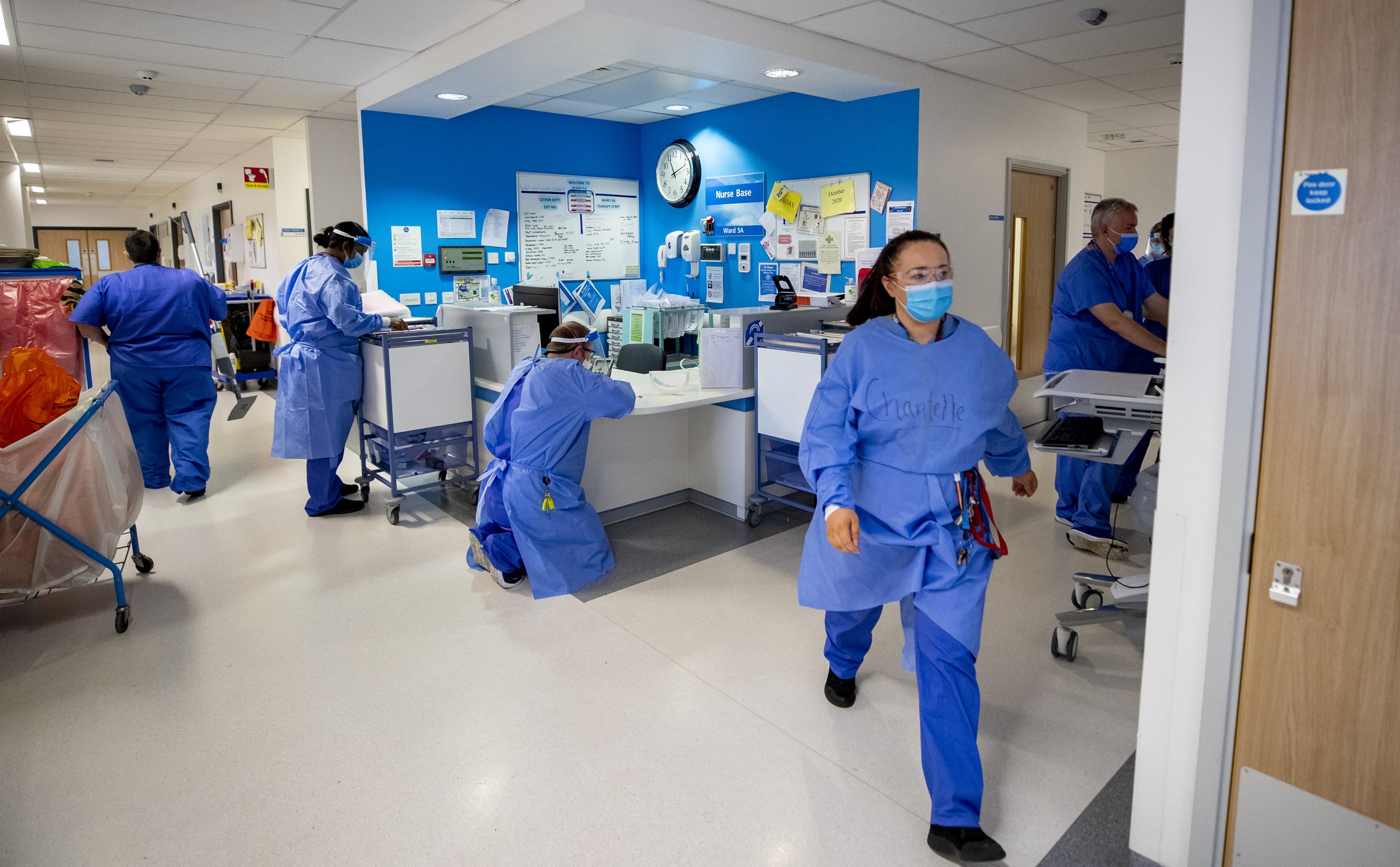Public services face cuts unless £26bn inflation hole plugged, IFS warns
Prices rises will cause cuts in healthcare, education and defence unless the Treasury intervenes, according to a leading economic think tank

Public services face deep cuts unless the government acts to plug a £26bn hole caused by inflation in the next two years, economists have warned.
A report by the Institute for Fiscal Studies (IFS) warned candidates in the Tory leadership race to be “honest and transparent” about the tough decisions that lie ahead this winter in areas from education to healthcare.
Senior economist at the think tank, Ben Zaranko, called for clarity on leadership candidates’ spending plans for the sector.
He said: “Given the inflation-induced squeeze on departments, and given the clear signs of strain within the NHS in particular, it might make sense for Mr Sunak and Ms Truss to also outline their plans and vision for public spending and public services,” he said.
The IFS’s intervention follows requests for an emergency drive to ease cost of living pressures from former prime minister Gordon Brown, business group the Confederation of British Industry, and Money Saving Expert founder, Martin Lewis.
A failure to increase budgets for the NHS and government departments would be a “deliberate decision to cut spending” it said.
Departments and other institutions funded by the Treasury are allocated funding in cash, rather than in real terms, without taking into account inflation.
With prices rising, demands for higher pay have gathered pace, amid threats of industrial action as workers struggle to manage a dramatic fall in living standards.
Public sector pay makes up around half of some bodies’ budgets, so the need to offer staff better pay offers will have an immediate impact “effectively cutting public services”, Thomas Pope, deputy chief economist at the Institute for Government, a non-partisan Whitehall think tank told The Independent.
“That’s a legitimate case for a government to make, but it means cutting back services nonetheless,” he added.
Taking the NHS as an example, Mr Pope said: “They’ll have to hire fewer doctors and nurses, or cut back on some particular kinds of drugs.”
Schools will face similarly drastic choices, as teachers’ pay makes up a large chunk of the education budget, he said.
Defence spending, an area of particular tension between Truss and Sunak, is set to be more than 8 per cent lower in 2024−25 than in 2021−22, the IFS found, due to higher inflation.
Without action from the Treasury, the impact of inflation on local services will be “disastrous”, James Jamieson, chairman of the Local Government Association (LGA), said.
And while local and central government leaders are yet to choose which services to cut, several officials told The Independent that the impact on budgets because of rising costs is so severe there will be a swift and extreme impact on frontline services in the months ahead.
The immediate impact of higher energy bills could see leisure centres close throughout winter, according to two senior executives at different local authorities.
“Choosing not to compensate departments for unexpectedly high-cost pressures would be a deliberate decision to cut spending in real-terms, at a time when many public services are showing signs of strain,” the IFS research note said.
As an import-dependent economy, the UK is particularly exposed to the forces of higher global prices in energy and food markets, economists have warned. The result is that Britain is poorer in real terms thanks to worldwide price pressures.
The impact will be felt by households and public services alike, but the depth and breadth of the pain will rest on political decisions around tax and spending, the IFS said.
“Choosing to accept a reduced range and quality of public services is one possible response to becoming a poorer nation,” according to the study.
“But if the next prime minister does choose to cut rates of corporation tax, national insurance or income tax, and chooses to leave public services worse off heading into a difficult winter, they should be honest and transparent about the choice they have made,” it added.
Mr Jamieson said services across local councils were now on the line, thanks to higher prices and requests for pay rises.
“Soaring inflation, energy prices and national living wage pressures are putting council services at risk. Budgets are having to be reset with potential cuts to the essential services people rely on, in the middle of a cost of living crisis,” he said.
“Inflation is not going to come down overnight. The impact on our local services could be disastrous. This will stifle our economic recovery, entrench disadvantage, and undermine government ambitions to level up the country,” Mr Jamieson added.
Join our commenting forum
Join thought-provoking conversations, follow other Independent readers and see their replies
Comments

Bookmark popover
Removed from bookmarks